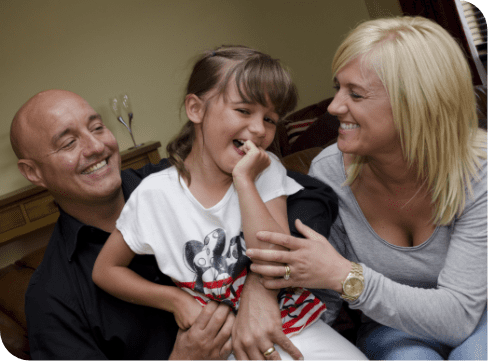What is TSC?
Tuberous Sclerosis Complex (TSC) is a rare genetic condition that affects around 1
million people worldwide
Tuberous Sclerosis Complex (TSC) is a rare genetic condition that affects around 1 million people worldwide.
A person is born with TSC, meaning that the condition is not something that a person can develop over time. However, problems from TSC might not be obvious until later in life.
TSC causes non-cancerous growths to develop in different organs around the body, such as the brain, eyes, heart and skin. Issues caused by TSC are as a result of the growths developed due to the condition.
Common problems from TSC can include epilepsy, autism, learning difficulties and kidney problems. However, the way that TSC impacts on a person’s life can vary considerably.

The diversity of how TSC can impact a person’s life means that measuring the number of people living with the condition can be difficult, with estimates that between 3,700 – 11,000 people in the UK live with TSC.
Our understanding of TSC, its influence on the body and how to manage the condition has improved significantly in recent years. This has led to improved diagnosis, medical care and support structures for individuals and families affected by TSC.
Thanks to our improved understanding of TSC, the majority of people living with the condition can expect to live healthier lives with a normal life expectancy.
Tuberous Sclerosis Complex (TSC) is an illness. Around 1 million people around the world have TSC.
A person is born with TSC. You can’t be born without TSC and then get it when you are older. You can’t catch TSC from another person. But, problems you might have because of TSC might start only when you are older.
If you have TSC, lumps grow in different parts of your body that wouldn’t normally be there. Some places where the lumps might grow are the brain, eyes, heart and skin.
TSC might make you poorly because of the lumps that grow in your body because of it. The lumps might mean you have seizures (these used to be known as ‘fits’ but people usually don’t use this word any more), feel or act differently or have kidney problems.
But remember, the way TSC makes a person poorly is different for everyone. Just because one person who has TSC has seizures (these used to be known as ‘fits’ but people usually don’t use this word any more), it does not mean you definitely will also.
A person’s age when they are told they have TSC can be very different. Some people are told when they are grown up. Other people have always known.
TSC can make people poorly in different ways. This means it is hard to know exactly how many people live with TSC. We think that between 3,700 – 11,000 people in the UK live with TSC.
We have learned lots about TSC. Including what it does to the body and how to look after people who live with TSC. Most people who have TSC live healthier lives now and live until they are old.
Download resources
Useful links
Related TSA pages
Make a one off or regular donation
£10 Can allow us to send a welcome pack to a family who has just received a life-changing TSC diagnosis, ensuring that they do not go through this time alone.
£25 Can help us develop materials that are included in our support services, flagship events or campaigns.
£50 Can provide laboratory equipment for a day’s research into the causes, symptoms, management or treatment of TSC.
To provide help for today and a cure for tomorrow





